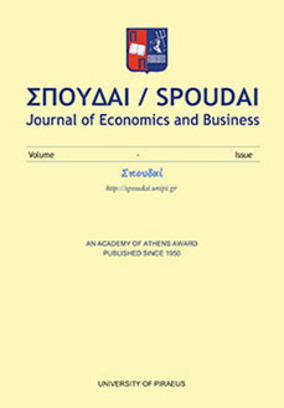Regional labour markets in Greece : the cases of the Northern Aegean and the Ionian islands
Part of : Σπουδαί : journal of economics and business ; Vol.59, No.3-4, 2009, pages 72-101
Issue:
Pages:
72-101
Author:
Abstract:
The basic aim of this paper is to investigate the impact that educational level of individuals and participation in training programmes (apprenticeship, intra-firm training, continuing vocational training, popular training) have on their job prospects in the regions of Northern Aegean and the Ionian Islands during the implementation of the first Community Support Framework - CSF (1989-1993). We try to see whether the educational level itself and parti ci pation in training programmes increased the chances of finding a job. More specifically, we research what are the social and demographic characteristics that increase the chances of someone in the examined population finding a job, how those chances change (if they do) after the introduction of training courses and, also, whether University graduates, in contrast to most of the rest of the EU member states, face greater difficulties in finding a job than non-University graduates, as a series of studies or aggregate statistics for Greece conclude. The findings of the logit model show that although concerning education the picture is mixed, the more trained a person did not improve his position in the labour market during the examined period. To the author’s knowledge, this is the first attempt to analyse individual anonymised records (micro-data) of the Labour Force Survey (LFS) for both employed and unemployed at NUTS-2 level.
Subject (LC):
Keywords:
cross-sectional models, labour economics policies, human capital, skills, regional-urban and rural analyses
Notes:
Περιέχει πίνακες και βιβλιογραφία




